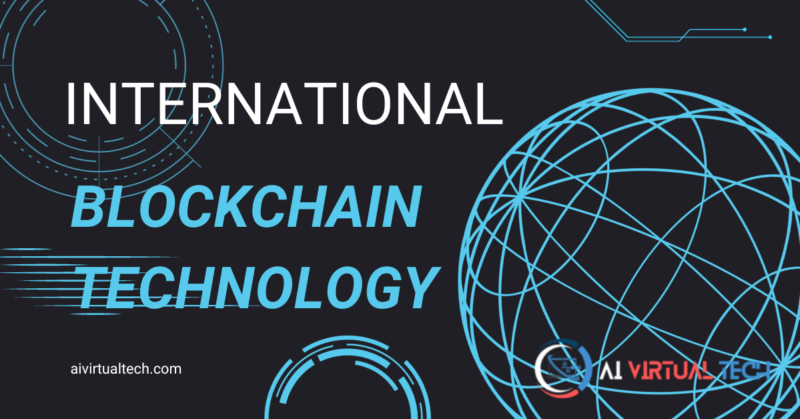A blockchain is a digital ledger of all cryptocurrency transactions. It is constantly growing as “completed” blocks are added to it with a new set of recordings. Each block contains a cryptographic hash of the previous block, a timestamp, and transaction
What is blockchain technology?
What is blockchain technology? It’s a question that often sparks curiosity and intrigue. Simply put, blockchain is a decentralized digital ledger that records transactions across multiple computers or nodes in a secure and transparent manner.
At its core, blockchain relies on cryptographic algorithms to ensure the integrity and immutability of data.
Each transaction, or block, contains a unique identifier called a hash which links it to the previous block, forming an unbreakable chain. This makes it virtually impossible for anyone to alter or tamper with the records without detection.
The power of blockchain lies in its ability to provide trust and transparency without relying on intermediaries like banks or governments.
It enables peer-to-peer transactions directly between individuals or organizations while maintaining security and privacy through encryption.
Blockchain technology has gained widespread attention due to its association with cryptocurrencies like Bitcoin.
However, its applications extend far beyond digital currencies. From supply chain management and healthcare records to voting systems and real estate transactions, blockchain can revolutionize various industries by enhancing efficiency, reducing costs, eliminating fraud, increasing accountability, and empowering individuals.
How is blockchain technology used?
Blockchain technology is used in a variety of industries and sectors, revolutionizing the way transactions are conducted and data is stored. One of the most prominent applications of blockchain technology is in the realm of finance.
Blockchain has enabled the creation of cryptocurrencies such as Bitcoin, which allow for secure and transparent peer-to-peer transactions without the need for intermediaries like banks.
Blockchain technology has far-reaching implications across various industries. Its ability to provide secure, transparent, and efficient transactions makes it an attractive solution for many businesses looking to improve their operations.
The benefits of blockchain technology
The benefits of blockchain technology are vast and far-reaching. One of the key advantages is its ability to provide a decentralized system that eliminates the need for intermediaries, such as banks or government entities, in transactions. This not only reduces costs but also increases efficiency by streamlining processes.
This level of transparency and immutability ensures trust among participants in any transaction.
The benefits of blockchain technology include decentralization, increased security, improved efficiency in transactions, enhanced supply chain management capabilities, and expanded financial inclusion possibilities – all contributing towards a more transparent and equitable future economy.
The challenges of blockchain technology
The challenges of blockchain technology are not to be underestimated. While this innovative technology has the potential to revolutionize various industries, it is not without its hurdles.
One of the main challenges is scalability. Blockchain networks can struggle with processing a large number of transactions simultaneously.
This can lead to slower transaction speeds and increased costs. As more users join the network, finding solutions for scaling becomes crucial.
Security is also a major concern in blockchain technology. While the decentralized nature of this technology makes it inherently secure, hackers have found ways to exploit vulnerabilities in certain implementations or smart contracts.
Regulatory frameworks pose another challenge for blockchain adoption on an international scale.
Different countries have different regulations when it comes to cryptocurrencies and blockchain applications, making it difficult for businesses to navigate legal landscapes.
Educating the general public about blockchain remains a significant hurdle. Many people still associate blockchain solely with cryptocurrencies like Bitcoin and lack awareness about its broader potential across various industries.
Addressing these challenges will require continuous research, development, collaboration among stakeholders, regulatory clarity, and educational initiatives aimed at increasing understanding and trust in this transformative technology

How to get started with Blockchain Technology?
1. Educate Yourself: Start by gaining a solid understanding of what blockchain technology is and how it works. There are plenty of online resources, books, and courses available that can help you grasp the fundamentals.
2. Join Communities: Engage with like-minded individuals who are already involved in blockchain technology. Participate in forums, attend meetups or join online communities to learn from their experiences and ask questions.
3. Choose Your Focus: Define your area of interest within blockchain technology. Whether it’s cryptocurrencies, supply chain management, or smart contracts, specializing in a specific niche will allow you to dive deeper into the subject matter.
4. Explore Use Cases: Familiarize yourself with real-world use cases of blockchain technology across various industries such as finance, healthcare, logistics, and more. This will give you insights into potential applications for your own projects.
5. Develop Technical Skills: Depending on your goals, acquiring technical skills may be necessary. Learn programming languages relevant to blockchain development like Solidity (for Ethereum), or explore platforms that offer low-code solutions for building decentralized applications.
6. Start Small: Begin by experimenting with small-scale projects or joining existing ones as a contributor to gain hands-on experience working with blockchain technology.
7. Network and Collaborate: Connect with professionals already active in the field through conferences or networking events dedicated to blockchain technology.
Summary
Blockchain technology has revolutionized the way we transfer and store data. Its decentralized nature ensures security, transparency, and immutability in transactions. By using cryptographic algorithms, blockchain eliminates the need for intermediaries, making it faster and more cost-effective.
Frequently Asked Questions (FAQS)
What is blockchain technology and how does it work?
Blockchain technology is a decentralized system that allows for secure, transparent, and tamper-proof transactions. It works by using a network of computers to maintain a shared ledger of transactions called blocks.
How is blockchain technology used in different industries?
Blockchain technology has applications across various industries such as finance, supply chain management, healthcare, and more. Supply chain management can benefit from increased transparency and traceability using blockchain solutions. Healthcare can leverage blockchain for secure patient data sharing and drug authentication.
What are some benefits of adopting blockchain technology?
Some benefits include enhanced security due to cryptography techniques used in securing transactions, improved transparency as all participants have access to the same information on the distributed ledger, reduced costs by eliminating intermediaries in processes like payment settlements or supply chain tracking.
Are there any challenges associated with implementing blockchain technology?
Yes! Some challenges include scalability issues with large networks due to processing limitations; regulatory uncertainty regarding cryptocurrencies which use blockchain; interoperability concerns between different blockchains; privacy concerns related to storing sensitive information on an immutable ledger.
Can anyone start using blockchain technology?
Yes! Anyone can explore or experiment with existing public blockchains like Bitcoin or Ethereum without permission – but building private or enterprise-grade implementations require technical expertise or partnering with specialized companies who provide such services!
Conclusion
Blockchain technology has emerged as a revolutionary force in the digital landscape. Its decentralized nature and transparent framework have opened up new possibilities across various industries. From finance to supply chain management, blockchain is transforming the way we conduct transactions and share information.













